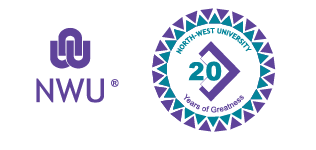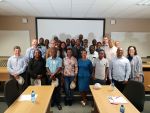 NEWSLETTER ISSUE #5/2018
NEWSLETTER ISSUE #5/2018
|
Southern African DSM user group gathers for 3rd annual conference
On 13 and 14 March 2018, the TRADE research entity together with TRADE Advisory held their 3rd annual TRADE-DSM® User Group Conference. Delegates from institutions across the SACU region attended, including:
• BITC (Botswana Investment and Trade Centre) Many interesting topics were discussed during the two-day conference, including what story the updated international trade data is conveying – particularly in the light of changing global trade patterns and the effect of the international trade data update on realistic export opportunities as defined by the TRADE-DSM®. The main features of the newly updated and enhanced TRADE-DSM® and its growing eco system were presented to conference delegates, along with the TRADE-DSM Navigator’s® new approach which includes the potential and specific requirements of the Halaal market. In addition, certain sessions were devoted to the topic of Economic Complexity (EC), specifically in relation to why certain countries are poor and others are rich, and which new industries are likely to emerge as drivers of growth in a country. EC’s ability to predict future economic growth trends more accurately than conventional governance measures was a source of particular interest to the delegates. The ‘Scrabble theory’ of economic development was also given attention and several policy implications were debated with reference to international research findings in the EC field.
Delegates also had the opportunity of sharing their statistical data requirements (and frustrations) with the rest of the group – which will assist the ongoing TRADE-DSM® development work ‒ and of debating the role of a research department in the trade and investment world. |
|
Archive newsletters
|

